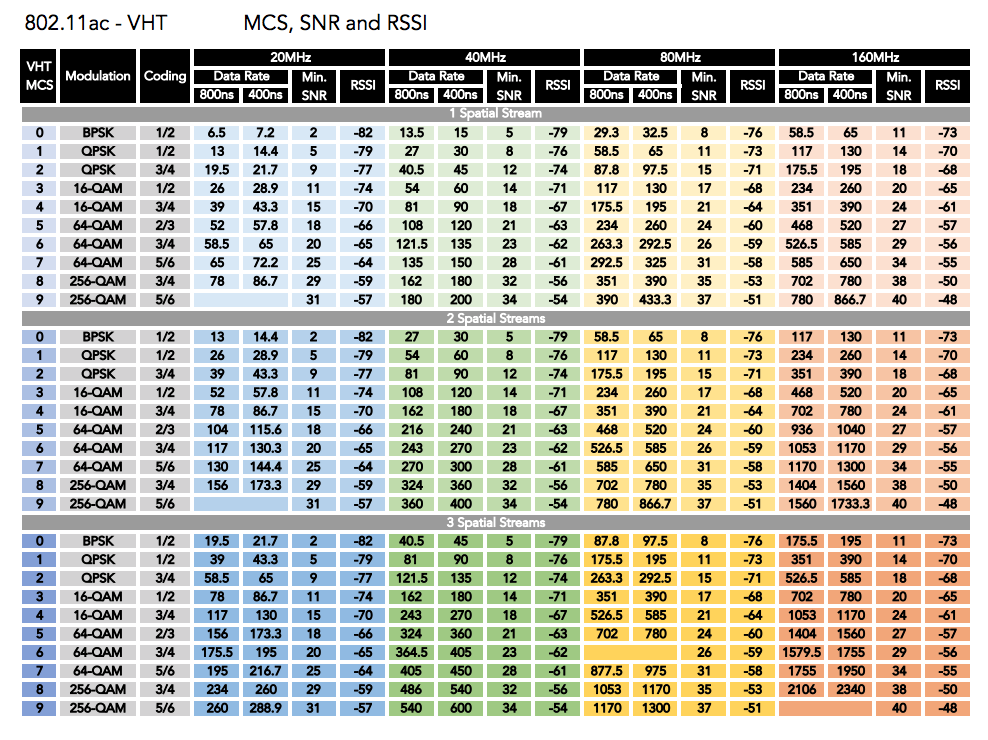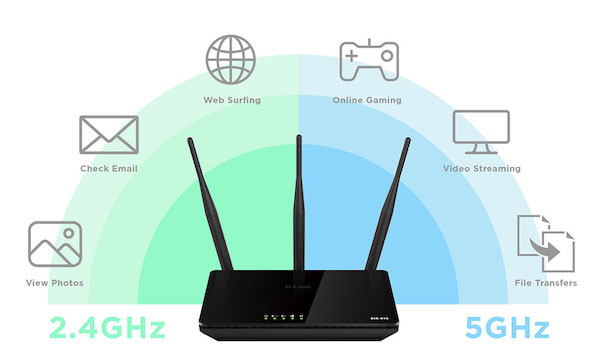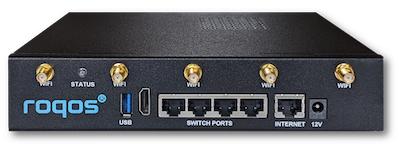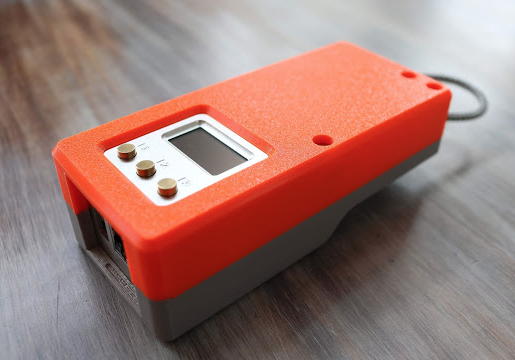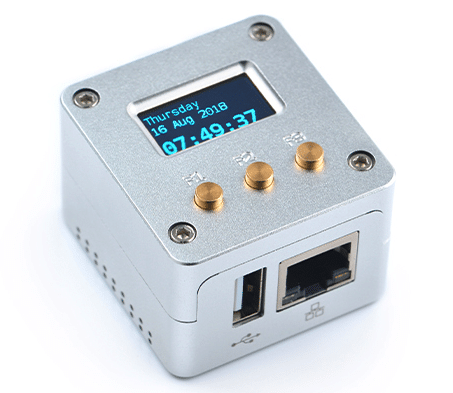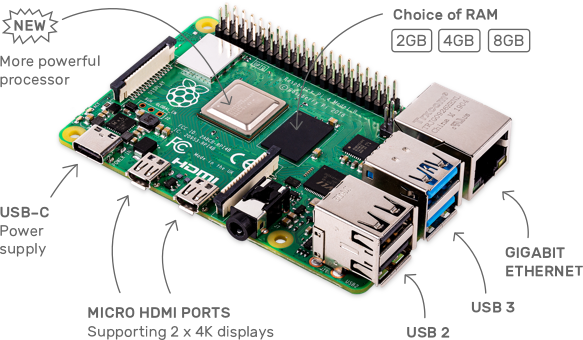Many articles have been written on how to properly calculate the quality of a WiFi connection. In this blog we will introduce one concept, the modulation and coding scheme (MCS) index, and show how it can be used to understand the quality of a WiFi connection for Windows and Mac OS computers. Modulation refers to the way data is formatted prior to transmission. The coding scheme refers to how the data is encoded while being transmitted.
What is the MCS Index? How to Read and Measure It
[fa icon="calendar'] Dec 21, 2021 5:22:26 PM / by Blog Team posted in WiFi
Common Work from Home WiFi Issues
[fa icon="calendar'] Aug 12, 2021 5:38:12 PM / by Blog Team
Like most things in life, working from home is not always easy. You might have to deal with finishing up a project on a tight deadline, or you might be trying to get some much-needed peace and quiet for said project. But when your WiFi starts acting up and getting too slow for your liking, it can make those "working from home" days feel anything but productive.
The problem with WiFi is that it's ripe for interference when you're working from home. Between neighbors personal devices, cars, appliances, and even your own devices emitting WiFi signals, it can get pretty crowded in the airwaves. And when too many devices are clogging up airwaves shared by your router at once, it's bound to start causing some problems.
Luckily for you (and the rest of us working from home), it doesn't have to be this way. And fortunately for you, AccessAgility is here to help. AccessAgility has been a leading provider of WiFi discovery and analysis software for many years, and we have seen the same issues over and over again.
In this article, we'll go through some of the most common WiFi issues when working from home. We'll also review some best practices to avoid these issues in the first place.
Linux WiFi Scanner Options
[fa icon="calendar'] Aug 9, 2021 3:15:23 PM / by Blog Team
If you are like me, then you love to tinker with hardware. Whether it is a desktop or a mobile device, I am always looking to explore and experiment with new technology. One of the best things about Linux is the ability to use powerful tools free of charge. If you are a Linux user like myself, then you already know that there are many different types of software available for almost any task.
The one area where I have always found Linux to be lacking is a solid WiFi Scanner similar to what is available for Windows, Mac OS, Android and even Apple's iOS. I think the main reason is that the user base on Linux is not large enough for organizations to invest in creating a high end native Linux WiFi scanner.
This is one of the reasons we created a way for users of Linux devices to be able to leverage our Windows WiFi Scanner to remotely connect to Linux devices for WiFi Scanning. We think this is a good compromise between getting scanner data based on how the Linux devices see it versus creating a native Linux WiFi scanner.
Other Linux WiFi Scanner options below based on my research. As you can see the user interfaces are not as high quality as what you find on other operating systems and the features of each app are limited.
LinSSID – A Graphical WiFi Scanner for Linux
LinSSID is a graphical WiFi scanner for Linux, and is available in several flavors. For my needs, I chose the Graphical version:
The LinSSID interface is built using HTML5 and CSS3 technology. The interface looks great, simple to use and opens quickly. Although you can scan as many networks as you like, for this review I'll focus on the Auto-Scan feature that will scan all wireless SSIDs that it can find and then present them to you in a new tab so that you can manually perform any necessary scans. Once your scans are complete, your network information along with the identified devices are saved into text files located in the "/home/$USER/.essid" directory.
HORST - Highly Optimized Radio Scanning Tool
This next option is Horst. It is a free, command-line interface lightweight IEEE 802.11 WLAN analyzer with a text user interface. Horst can be used on any wireless LAN interface which supports monitor mode.
Kismet
Kismet is another graphical WiFi scanner for Linux. Kismet works similar to the other two tools mentioned here and it also has a chart page, but one additional feature that makes Kismet stand out is that you can compare your scans with another of your choice and add notes to the comparison.
Quick and Easy Ways to Improve Your WiFi with WiFi Scanner
[fa icon="calendar'] Aug 3, 2021 11:06:34 PM / by Blog Team posted in WiFi
For those of us who live in dorms, apartments, or other small spaces where WiFi is a necessity for working or studying, it can be frustrating to work with poor WiFi Internet speeds. WiFi can be difficult to get right at home. Setting up optimized WiFi has a steep learning curve and it’s easy to do something wrong without the proper tools or guidance on what knobs to turn. Or your neighbor two floors above you has set up their WiFi so badly that your own WiFi becomes unreliable. The problem can be especially frustrating when you are trying to download large files or have a video call but get an error message.
Integrating WiFi Scanner with Roqos RC10 IPS VPN Firewall Router
[fa icon="calendar'] May 4, 2021 3:33:35 PM / by Blog Team posted in WiFi
WiFi Scanner
Integrating WiFi Scanner with NetBeez WiFi Sensor Agents
[fa icon="calendar'] Apr 16, 2021 3:21:26 PM / by Blog Team posted in WiFi
WiFi Scanner
WLAN Pi Project Hardware: A Brief History Lesson
[fa icon="calendar'] Mar 5, 2021 3:03:39 PM / by Blog Team posted in WiFi
WLAN Pi Project
The WLAN Pi Project is community driven project for building a multi-purpose Wi-Fi analysis tool using single board computers (SBC). The project was started by @jolla around 2016 and since then has added several team members that contribute project code and many enthusiasts that market kits and cases for the WLAN Pi hardware.
How to Use WLAN Pi as a Remote WiFi Scanner / Sensor
[fa icon="calendar'] Feb 22, 2021 4:15:15 PM / by Blog Team posted in WiFi
WiFi Scanner for Windows is a WiFi discovery and scanning application for IT professionals and home users looking for detailed information about surrounding WiFi networks.
WLAN Pi is a portable device that can be used as a throughput tester, remote WiFi scanner, packet capture tool, portable WiFi signal generator and more.
Linux WiFi Scanner using Raspberry Pi 4 and 3 B+ (B Plus)
[fa icon="calendar'] Feb 20, 2021 1:44:29 PM / by Blog Team posted in WiFi
In this blog post we will cover how to configure a Linux device such as a Raspberry Pi computer as a remote WiFi Scanner. Our setup uses our Windows based WiFi Scanner on a Windows 10 laptop.
The Windows WiFi Scanner connects the the local or remote Raspberry Pi via SSH to transmit WiFi scanning results from the Raspberry Pi to the Windows WiFi Scanner for display.
The benefits of this setup are below.
- Linux device can be local or remote as long as SSH access to device is available.
- Linux device can be low cost device like a Raspberry Pi.
- Leverage wide selection of USB wireless adapter support available for Raspberry Pi devices and operating system.
8 Easy Steps to Follow for Home WiFi Success
[fa icon="calendar'] Nov 11, 2020 3:45:28 PM / by Blog Team
A list of the 8 steps to follow for home WiFi success are below with more details for each step after the list.
